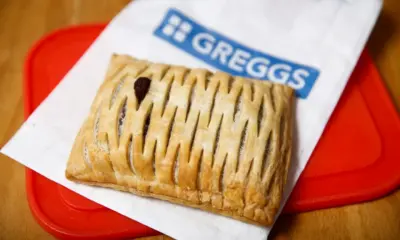Videos
UK Housing Bubble 2025 Explained: The Truth You Need To …
The UK housing market has long been a topic of heated debate, but in 2025, concerns about a potential housing bubble have reached new heights. From soaring property prices to declining affordability, the warning signs are becoming impossible to ignore. But what exactly is happening, and what does it mean for homeowners, renters, and first-time buyers? Let’s break it down.
What is a Housing Bubble?
A housing bubble occurs when property prices rise far beyond their actual economic value, fueled by speculation, easy credit, and high demand. Eventually, the bubble bursts, leading to a sharp drop in prices, leaving homeowners and investors exposed.
Why the UK Market Looks Like a Bubble in 2025
1. Record-High House Prices
House prices across the UK, particularly in London and the South East, have hit unprecedented levels. Even modest homes are selling for sums far beyond the reach of average earners. This steep climb suggests prices are being driven less by genuine value and more by speculation.
2. Rising Interest Rates
The Bank of England has raised interest rates to curb inflation. This means higher mortgage repayments, putting financial strain on households. As borrowing becomes more expensive, demand could slow, leaving those who bought at inflated prices vulnerable.
3. Stagnant Wages vs. Costs
While property values have surged, wages have barely moved. The gap between what people earn and what they need to afford a home is wider than ever. This imbalance is unsustainable, and history shows such gaps often precede market corrections.
4. Investor-Driven Demand
A large portion of property purchases in recent years has come from buy-to-let investors and overseas buyers. This has artificially propped up demand, while locking out ordinary families and first-time buyers.
What Happens If the Bubble Bursts?
If house prices start to fall sharply, homeowners with high mortgages could find themselves in negative equity,owing more than their property is worth. Investors may sell off quickly, accelerating the decline. Renters may see some relief, but the wider economy could suffer, as housing is deeply tied to consumer confidence and spending.
Should You Buy in 2025?
For first-time buyers, the decision is tricky. On one hand, waiting could mean lower prices if a correction happens. On the other, renting costs remain high, and there’s no clear timeline for a potential downturn. The key is to avoid overstretching financially, buy within your means, and don’t rely on house prices always going up.
Conclusion
The UK housing bubble in 2025 is a complex mix of inflated prices, rising borrowing costs, and economic uncertainty. Whether it bursts or slowly deflates, the truth is clear: the current situation is unsustainable. Understanding the risks and preparing wisely is the best way to navigate the uncertain road ahead.










